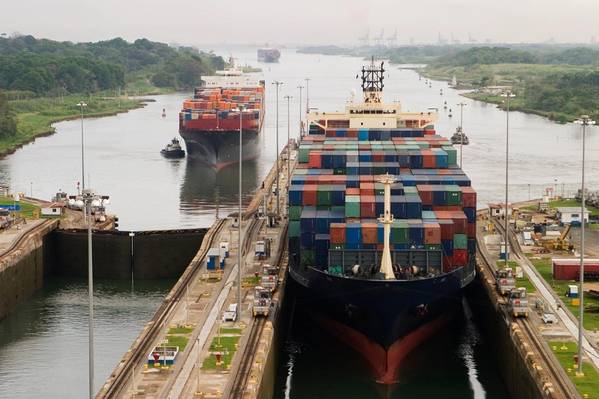
The Panama Canal expects to maintain restrictions on daily vessel transit and maximum draft for at least 10 more months amid a prolonged drought that has lowered the water level, an official from the waterway said on Thursday.
The canal's authority earlier this year began imposing restrictions, causing a backlog of vessels waiting to pass. The curbs have forced vessel owners to lighten cargoes or shift to alternate routes as freight costs increase for some routes.
The extension of the restrictions would give the canal room for preserving water before the next rainy season arrives, but could create a larger bottleneck of ships if they do not reserve ahead of passage.
"We are currently seeing an increase in arrivals. It is peak season as December is approaching, so merchandise for Christmas is moving quickly," the canal's deputy administrator, Ilya Espino, said in an interview.
Espino recommended vessel owners reserve slots ahead of time to avoid delays, and said some ships - especially bulk carriers and vessels carrying coal - have diverted from the waterway because they do not have priority to pass, as container ship do.
In a move to ease a bottleneck that surpassed 160 vessels earlier this month, the canal's authority recently opened two more passage slots per day for non-booked ships.
The backlog has decreased since to 115 ships on Thursday, according to official data.
Canal operators are on a tightrope as they work to manage maritime trade disruptions and prepare for what is shaping up to be an even drier period next year. In Panama, a naturally occurring El Nino climate pattern associated with warmer-than-usual water in the Pacific Ocean is contributing to the drought.
(Reuters - Reporting by Elida Moreno, writing by Marianna Parraga, editing by Gary McWilliams and Sandra Maler)



